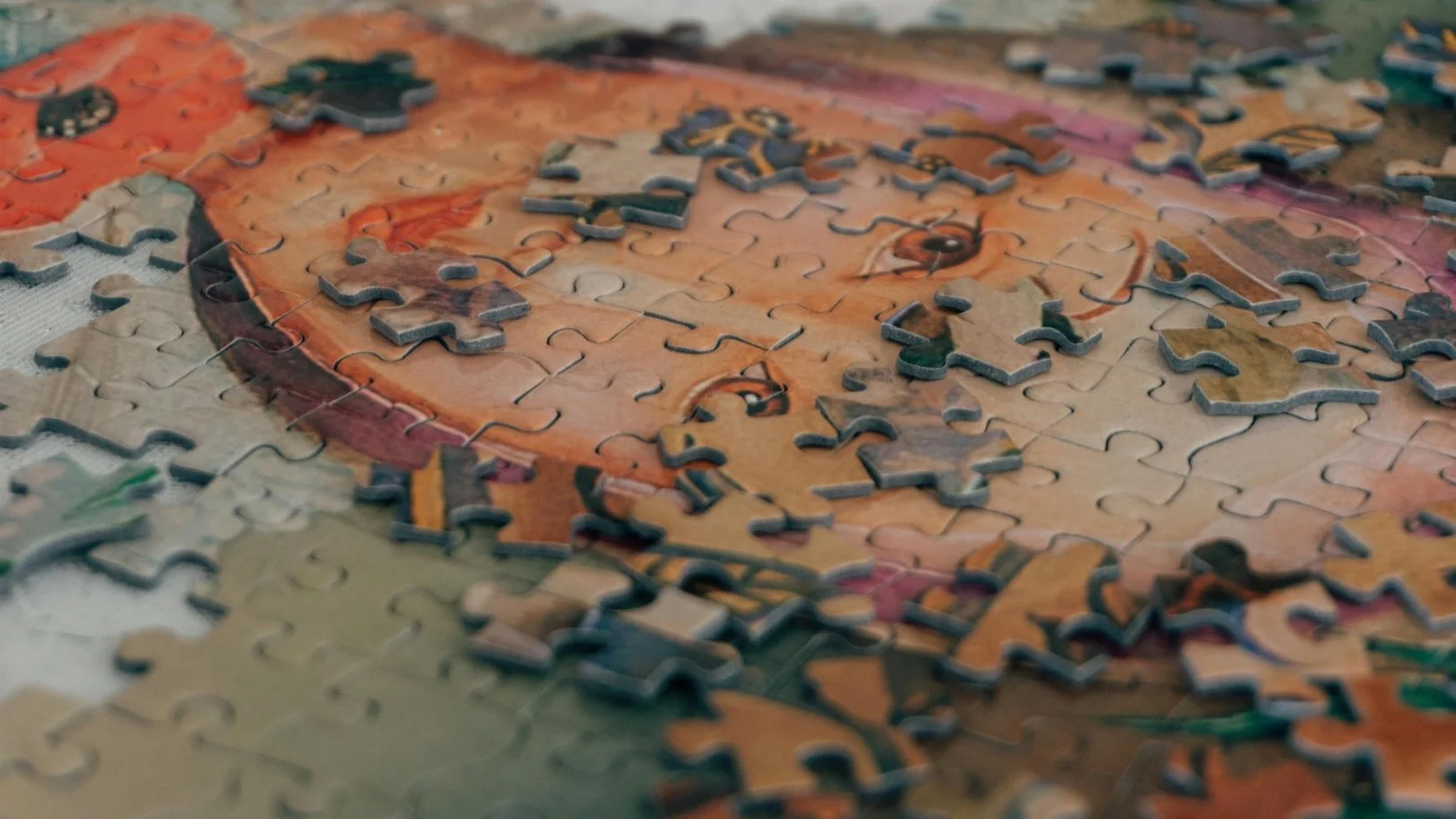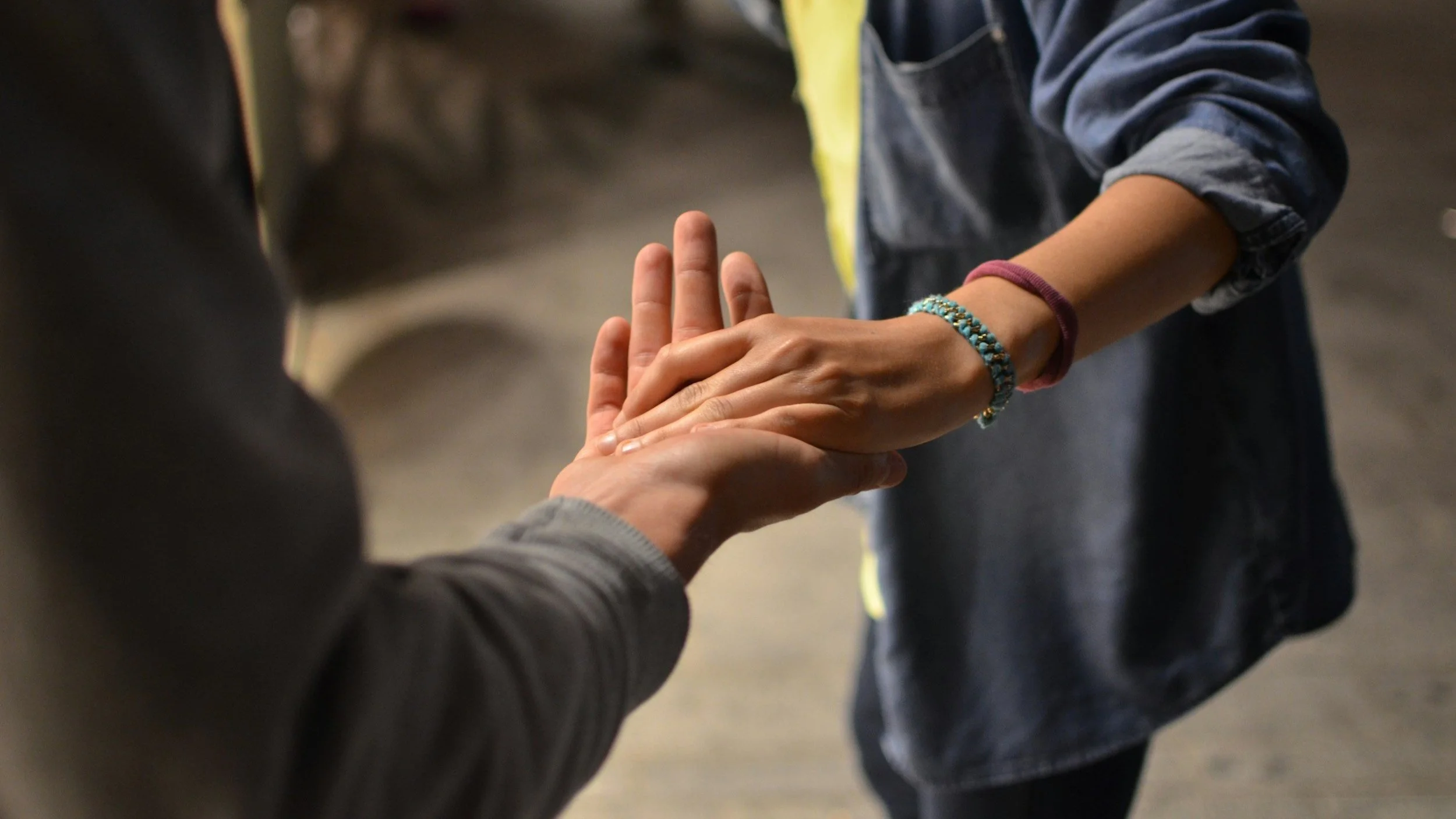Do You Need to Have It “All Together” to Date Successfully?
🕒 Estimated reading time: 7 minutes
You may have heard the advice: “You have to be a whole person before you can be in a relationship.” It’s usually delivered with the confidence of a universal truth (like the kind of advice that sounds deep, but rarely gets examined).
If “having it all together” means never needing anything or anyone, then we’re in trouble. Humans need relationships for joy, meaning, creativity, and everyday life. We’re social by nature, and that need for others is a feature — not a flaw.
That’s why I prefer to reframe the goal. Instead of aiming to be a “whole” person who has it all together, try thinking in terms of a satisfying life: one a relationship can enhance, but not define.
So let’s update the advice: “You should have it mostly ‘together’ and be willing to reassess and adjust along the way.”
Where the Concept Shows Up
In conversations with members of The Date Lab community, I’ve seen this idea pop up in different forms. One person told me they hadn’t dated in a couple of years, spending that time to focus on self-improvement. Another shared a more philosophical view: that it’s important to work on yourself before entering a serious relationship. You need to be happy alone first, so that you’ll want someone, not need someone.”
That might sound aspirational — and to an extent, I agree. When someone has high self-worth, they’re less likely to settle. They tend to have boundaries, standards, and a clearer sense of what they want. Research backs this up: people with higher self-esteem tend to experience more satisfying and stable romantic relationships (Kocur & Morry, 2008).
But there’s also a point where “working on yourself” backfires and is masking a holding pattern or avoidance. The difference between healing and hiding is often found in why someone isn’t dating — not just the fact that they aren’t.
So if you’ve put dating on pause:
What are you hoping to figure out or fix first?
What would “ready” look like?
Are you waiting for an idealized version of yourself?
If you answered those questions with more uncertainty than clarity — good! That’s the point. It’s often in that uncertainty that meaningful growth becomes possible. And sometimes, it only emerges in the context of real connection — not in isolation.
Growth Requires Other People
Books like Attached, Wired for Dating, Hold Me Tight, and the Gottmans’ work all make the same point: growth, healing, and emotional skill-building don’t happen in a vacuum. They require interaction. Feedback. Tension. Repair.
You don’t learn to regulate your emotions by journaling alone (though it helps). You learn by sitting across from someone you care about when things feel tense — and choosing to stay in the conversation.
In fact, Dr. John Gottman’s research shows that how couples handle conflict matters more than whether they fight at all. Roughly 69% of issues in relationships are recurring, but couples who communicate and repair well tend to stay connected anyway (Gottman Institute).
And this isn’t just about romance. You won’t know how you respond to criticism until a manager gives you some. You won’t know how you handle boundaries until a friend crosses one. You won’t know your capacity for trust until it’s tested.
As I wrote in “Go Slow to Go Fast,” rushing into something that feels right doesn’t mean you’re actually ready — especially if you haven’t thought about what kind of relationship you want or how you typically show up in early dynamics.
And in “Dodging the Bullet,” I explored how it’s easy to overlook early warning signs when we’re focused on starting something instead of asking whether it’s worth continuing.
Knowing when and how to course-correct requires intentional check-ins — with yourself, and with the other person.
What Does “All Together” Actually Mean?
So if it’s not about perfection, financial independence, or unshakable confidence — what is it?
To me, “having it all together” means not expecting a partner to rescue you, fix you, or complete you. It’s the opposite of enmeshment. It’s knowing you could function alone if needed — but that life feels richer with someone else in it.
There’s nothing wrong with wanting love, companionship, or support. But the healthiest relationships start from choice, not desperation.
Research backs this up: people with secure attachment styles — often shaped by early experiences or built intentionally through reflection and practice — tend to experience more stable, connected partnerships overall (Sun et al., 2023).
Readiness Isn’t a Finish Line — It’s a Series of Checkpoints
There are times when pressing pause on dating is the right call.
Maybe you’re coming out of a breakup and you’re feeling emotionally depleted.
Maybe you’ve noticed a pattern — like always choosing unavailable partners — and want to figure out what’s driving it.
Maybe you’re still learning how to express a boundary without apologizing for it.
Taking a step back doesn’t mean you’re broken — it means you’re recalibrating.
It’s a bit like adolescence — teens struggle with relationships not because they’re incapable of love, but because they’re still developing the tools to navigate it. The same goes for adults in transition. Not all pauses are avoidance. Some are preparation — a way to get ready to show up more clearly.
The key is knowing when that pause becomes a hiding place — and when momentum turns into bypassing.
If You’re Wondering If You’re “Ready”...
Here are a few questions I recommend reflecting on:
What does “having it all together” actually mean to me?
What’s holding me back from dating right now?
Am I avoiding something — or intentionally building something?
What would being “ready” look like in practice?
Forget about readiness as an end-goal. It’s not something you either have or don’t — it’s something you revisit and re-evaluate. When you’re just getting to know someone. When things get serious. When something shifts or feels off.
Whether you're single or partnered, that process doesn’t change. The real work is paying attention: to when you’re hiding, when you’re stretching, when you’re avoiding something, and when you’re building something new.
And ideally, doing that alongside someone who’s also paying attention — not to rescue you or complete you, but to grow with you.
Further Reading
Curious to dig deeper into the ideas in this article? Here are some great resources that explore relationships, personal growth, and emotional connection:
The Seven Principles for Making Marriage Work - John Gottman
A research-backed guide to what makes relationships thrive — and what predicts their decline — based on decades of observational studies.Attached: The New Science of Adult Attachment - Amir Levine & Rachel Heller
A popular introduction to attachment theory and how it shapes your romantic behaviors and expectations.Wired for Dating - Stan Tatkin
A neuroscience-based take on dating, with insights into how your brain and nervous system impact connection, attraction, and long-term compatibility.Hold Me Tight - Dr. Sue Johnson
Focuses on the emotional needs and patterns that underlie conflict — and how couples can move toward more secure bonds.Self-Esteem and the Quality of Romantic Relationships – Lucie Kocur & John V. F. Morry
An academic study showing how self-worth influences relationship dynamics.Managing vs. Resolving Conflict in Relationships – Gottman Institute Blog
A practical breakdown of why most relationship conflicts are ongoing — and how couples can handle them constructively.




